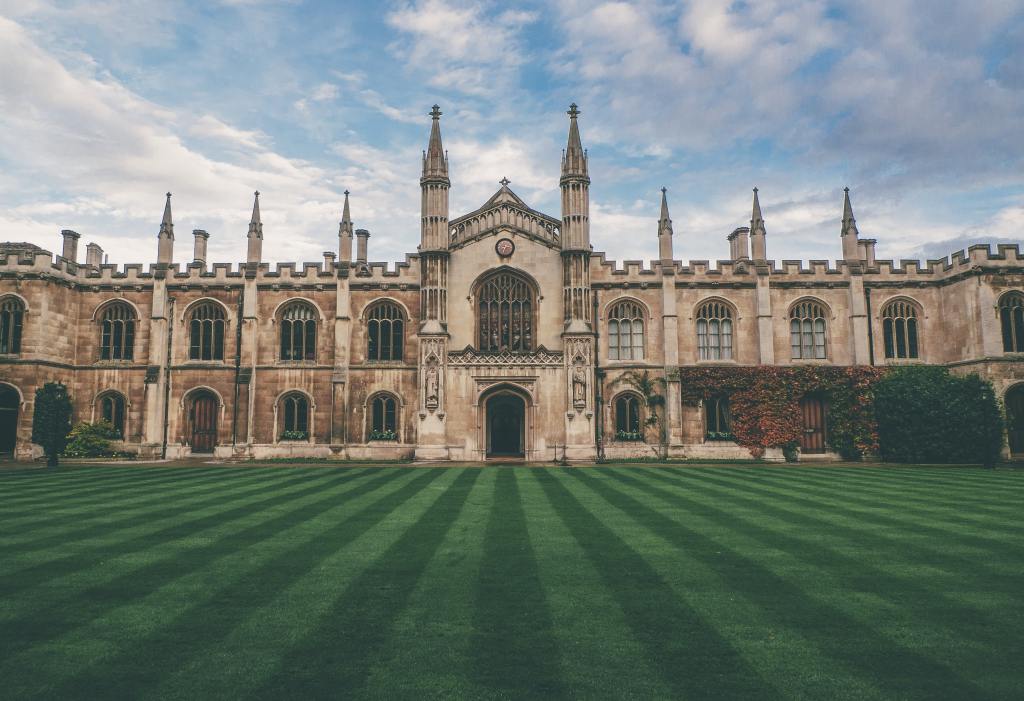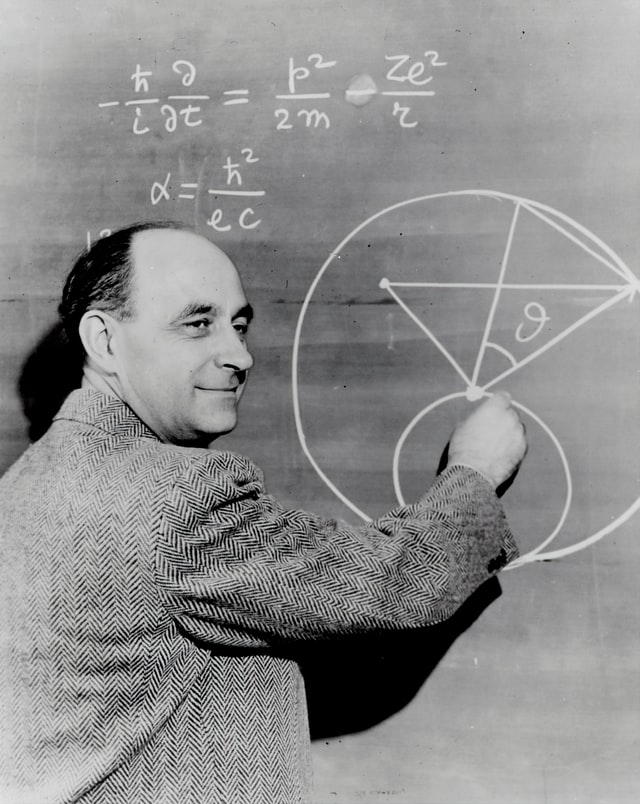The Problem

There’s little trust between teacher and student. Students must be disciplined for talking out of turn. Students must sit still for 3 hours while class is ongoing, with a short 10-15 minute break in the middle. Students cannot be trusted to be self-directed. It’s assumed that, if left to their own devices, they would simply flounder without the “structure” of school.
The student is told they must prove what they’ve learned to the authority figure, the instructor. Unfortunately, the way the current system is set up, the main ways you prove you learned is through a paper and pencil test where you fill in bubbles, or maybe write in answers. Or, you write a paper explaining what you learned or make an argument on a limited number of topics to choose from.
This is in contrast to trust.
A college student should be trusted that they want to learn, and in their fourth year synthesis project, they can “prove” their learning much better by applying the knowledge they gathered into an applied-to-life project. Some students will slack or do the bare minimum and just try to get by. But just because there are a few “rotten apples” doesn’t mean you have to treat everyone as if they’re trying to pull a fast one on you. Most people want to do a good job. (source) Especially if they’re adults who are in school by choice. There have been many books written on this subject, and the vast majority of research shows that humans don’t need to be ruled by an iron fist to be productive. In fact, micromanaging people does the opposite; it demoralizes people and makes them less motivated to work hard, or innovate.
Teachers would be better served to be experts in the subjects of their personal choice, as well as educated on how to best teach. There are many brilliant professors who, unfortunately, don’t know how to teach the subjects they are otherwise so brilliant at. Ideally, teachers would have both an equal amount of training in their subject(s) of choice, as well as, in teaching.
The cost of education is currently unaffordable in the U.S. for most of the population. The average cost of attendance is anywhere from $10,000 for a state school, assuming you are a resident of that state, to $36,000 for private education. I don’t know of anyone in my lifetime, who is around my age, who has paid out of pocket, every last penny of their college education. Most get loans, scholarships, grants, and money from their families or state programs, if possible.
The Solution

But what if universities didn’t have to pay for a brick and mortar university? What if universities were a wide network of experts, who had an education in teaching as well, as you could simply drop them a video call when you need them?
For example, if you’re interested in geometry, maybe your university has an expert you can call, who lives in Switzerland, but is affiliated and vetted by the school, and you could arrange a time to talk with them about where you’re stuck with your geometry learning, and the instructor could help you when you need them. Instead of an instructor assigning you homework, books, and tests, they could make suggestions as to which projects would help you learn the subject you’re interested in.
While a video call is inferior to an in-person, one-on-one interaction with an instructor, it is certainly a lot less expensive than the current system of paying sky high tuition, which goes toward not only the staff, but also the buildings, the maintenance of those buildings, and the landscaping.
The buildings and their maintenance alone is 15% of the tuition’s budget. Imagine now, paying 15% less for school. That’s $1,500 off for a state school, and $5,400 for a private institution. The video conference idea doesn’t seem so scary when you think of how much it can save you long term.
This is my four-year plan for a university education.


In the first year, it’s a good time to gain the big picture, such as the theoretical knowledge necessary to understanding what’s out there that you can learn for the foundation of your education. You would be encouraged to pick as many or as few of the first year general subjects as you wish.
This is counter to the traditional system, which forces you to take subjects you will likely never use in your lifetime, and which you will likely forget. A professional dancer doesn’t need to know calculus, and a calculus professor doesn’t need to know how to do ballet. It’s okay not to know everything and to specialize and become the best in your chosen field, because there is a limited amount of time on earth, and learning calculus when you really want to be a ballerina has limited value.
Subjects would be taught all throughout the year, with one week breaks each season, for a total of four weeks off in a year. This is because health psychology studies overwhelmingly have shown taking a vacation, offers tremendous health benefits. (source) Some studies have shown taking a week to de-stress and get away from the troubles of school or work offers health benefits such as lowered cardiovascular disease risk for up to an entire year after the break is taken. These vacations also allow the brain to recharge and be in better performance for the learning that will continue after the break.
1st year (general)
Humanities
Social sciences
Natural sciences
Formal sciences
Applied sciences

In the second year, there would be a new list of subjects that can be learned, based off of the first year’s foundation of knowledge. The student would pick as many or as few subjects as they wish to learn for the second year. This year would be a hybrid of both theoretical and applied education. Students would do less book reading this year, and spend more time working out in the field half the time, applying what they have learned or are learning. For example, say you always dreamed of being a prolific novelist. You might take all the humanities courses, but leave the formal sciences behind.
Then, you might start a concrete, detailed plan for how to begin learning to write well. An expert and teacher on writing could be your resource guide, as well as your consultant. The instructor could direct you to the right places to find a useful book, or maybe to an expert who could assist you in the direction you’re working toward. If the teacher isn’t an expert on writing horror, but knows of someone respected in the field, you could try to contact them. People are busy, but sometimes they are willing to help, and their advice should be treated as invaluable.

2nd yeaR (expanded)
- Humanities
- Arts
- History
- Home economics
- Languages and literature
- Law
- Philosophy
- Theology
- Social sciences
- Anthropology
- Economics
- Geography
- Political science
- Psychology
- Sociology
- Social work
- Natural sciences
- Biology
- Chemistry
- Earth science
- Space sciences
- Physics
- Formal sciences
- Computer science
- Mathematics
- Applied Sciences
- Business
- Engineering and technology
- Medicine and health

The third year is for specializing in your chosen field(s) of study. From this list you would gain access to more applied and specific training, such as going to conferences. This is the year you would take instruction and finish writing your plan as to how you are going to write that great novel, or invent that new software, or maybe even come up with a scientific paper to submit to a peer-reviewed journal, depending on your personal interests and values.
3RD YEAR (specialized)
Humanities

- Arts
- Performing arts
- Music
- Dance
- Television
- Theater
- Film
- Visual arts
- Fine arts
- Applied arts
- Fashion
- Performing arts
- History
- African history
- American history
- Ancient history
- Asian history
- Australian history
- Ecclesiastical history of the Catholic Church
- Economic history
- Environmental history
- European history
- Intellectual history
- Jewish history
- Latin American history
- Modern history
- History of philosophy
- Political history
- Pre-Columbian era
- Russian history
- History of culture
- Scientific history
- Technological history
- World history
- Public history
- Home economics
- Cooking
- Cleaning
- Clothing
- Family studies
- Finance
- Gardening
- Health
- Nutrition
- Languages and literature
- Linguistics
- Comparative literature
- Creative writing
- English literature
- History of literature
- Literary theory
- Poetry
- World literature
- Law
- Administrative law
- Canon law
- Civil law
- Comparative law
- Competition law
- Constitutional law
- Criminal law
- Islamic law
- Jewish law
- Jurisprudence
- Legal management
- Procedural law
- Substantive law
- Philosophy
- Aesthetics
- Applied philosophy
- Epistemology
- Ethics
- Logic
- Meta-philosophy
- Meta-physics
- Philosophical traditions and schools
- Social philosophy and political philosophy
- Theology
- Biblical studies
- Religious studies
- Biblical Hebrew, Greek, and Aramaic
- Buddhist theology
- Christian theology
- Hindu theology
- Jewish theology
- Muslim theology
Social sciences

- Anthropology
- Biological anthropology
- Linguistic anthropology
- Cultural anthropology
- Social anthropology
- Archaeology
- Economics
- Agricultural economics
- Anarchist economics
- Applied economics
- Behavioral economics
- Bioeconomics
- Complexity economics
- Computational economics
- Consumer economics
- Development economics
- Ecological economics
- Econometrics
- Economic geography
- Economic sociology
- Economic systems
- Education economics
- Energy economics
- Entrepreneurial economics
- Environmental economics
- Evolutionary economics
- Experimental economics
- Feminist economics
- Financial econometrics
- Financial economics
- Green economics
- Growth economics
- Human development theory
- Economics (cont.)
- Industrial organization
- Information economics
- Institutional economics
- International economics
- Islamic economics
- Labor economics
- Law and economics
- Macroeconomics
- Managerial economics
- Marxian economics
- Mathematical economics
- Microeconomics
- Monetary economics
- Neuroeconomics
- Participatory economics
- Political economy
- Public economics
- Public finance
- Real estate economics
- Resource economics
- Social choice theory
- Socialist economics
- Socioeconomics
- Transport economics
- Welfare economics
- Geography
- Physical geography
- Human geography
- Integrated geography
- Cartography
- Political science
- American politics
- Canadian politics
- Civics
- Comparative politics
- European studies
- Geopolitics
- International relations
- International organizations
- Nationalism studies
- Peace and conflict studies
- Political science (cont.)
- Policy studies
- Political behavior
- Political culture
- Political economy
- Political history
- Political philosophy
- Public administration
- Public law
- Psephology
- Social choice theory
- Psychology
- Abnormal psychology
- Applied psychology
- Biological psychology
- Clinical neuropsychology
- Clinical psychology
- Cognitive psychology
- Community psychology
- Comparative psychology
- Conservation psychology
- Consumer psychology
- Criminal psychology
- Cultural psychology
- Developmental psychology
- Differential psychology
- Ecological psychology
- Educational psychology
- Environmental psychology
- Evolutionary psychology
- Experimental psychology
- Group psychology
- Family psychology
- Feminine psychology
- Forensic developmental psychology
- Forensic psychology
- Health psychology
- Humanistic psychology
- Indigenous psychology
- Legal psychology
- Mathematical psychology
- Media psychology
- Psychology (cont.)
- Medical psychology
- Military psychology
- Moral psychology and descriptive ethics
- Music psychology
- Neuropsychology
- Occupational health psychology
- Occupational psychology
- Organizational psychology
- Parapsychology
- Pediatric psychology
- Pedology
- Personality psychology
- Phenomenology
- Political psychology
- Positive psychology
- Psychoanalysis
- Psychobiology
- Psychology of religion
- Psychometrics
- Psychopathology
- Psychophysics
- Quantitative psychology
- Rehabilitation psychology
- School psychology
- Social psychology
- Sport psychology
- Traffic psychology
- Transpersonal psychology
- Sociology
- Analytical sociology
- Applied sociology
- Architectural sociology
- Area studies
- Behavioral sociology
- Collective behavior
- Community informatics
- Comparative sociology
- Conflict theory
- Criminology/Criminal justice
- Critical management studies
- Critical sociology
- Cultural sociology
- Cultural studies
- Demography/population
- Digital sociology
- Dramaturgical sociology
- Economic sociology
- Educational sociology
- Empirical sociology
- Environmental sociology
- Evolutionary sociology
- Feminist sociology
- Figurational sociology
- Future studies
- Gender studies
- Historical sociology
- Human ecology
- Humanistic sociology
- Industrial sociology
- Interactionism
- Interpretive sociology
- Jealousy sociology
- Macrosociology
- Marxist sociology
- Mathematical sociology
- Medical sociology
- Mesosociology
- Microsociology
- Military sociology
- Natural resource sociology
- Organizational studies
- Phenomenological sociology
- Policy sociology
- Psychoanalytic sociology
- Science and technology studies
- Sexology
- Social capital
- Social change
- Social conflict theory
- Social control
- Social economy
- Social philosophy
- Social policy
- Social psychology
- Social stratification
- Social theory
- Social transformation
- Sociobiology
- Sociocybernetics
- Sociolinguistics
- Sociology (cont.)
- Sociology of aging
- Sociology of agriculture
- Sociology of art
- Sociology of autism
- Sociology of childhood
- Sociology of conflict
- Sociology of culture
- Sociology of cyberspace
- Sociology of development
- Sociology of deviance
- Sociology of disaster
- Sociology of education
- Sociology of emotions
- Sociology of fatherhood
- Sociology of finance
- Sociology of food
- Sociology of gender
- Sociology of generations
- Sociology of globalization
- Sociology of government
- Sociology of health and illness
- Sociology of human consciousness
- Sociology of immigration
- Sociology of knowledge
- Sociology of language
- Sociology of law
- Sociology of leisure
- Sociology of markets
- Sociology of marriage
- Sociology of motherhood
- Sociology of music
- Sociology of natural resources
- Sociology of organizations
- Sociology of peace, war, and social conflict
- Sociology of punishment
- Sociology of race and ethnic relations
- Sociology of religion
- Sociology of risk
- Sociology of science
- Sociology of scientific knowledge
- Sociology of social change
- Sociology of social movements
- Sociology of space
- Sociology of sport
- Sociology of technology
- Sociology of terrorism
- Sociology of the body
- Sociology of the family
- Sociology of the history of science
- Sociology of the internet
- Sociology of work
- Sociomusicology
- Structural sociology
- Theoretical sociology
- Urban/rural sociology
- Victimology
- Visual sociology
- Social work
- Clinical social work
- Community practice
- Mental health
- Psychosocial rehabilitation
- Person-centered therapy
- Family therapy
- Financial social work
Natural sciences

- Biology
- Aerobiology
- Anatomy
- Biochemistry
- Bioinformatics
- Biophysics
- Biotechnology
- Botany
- Cell biology
- Chronobiology
- Computational biology
- Cryobiology
- Developmental biology
- Ecology
- Endocrinology
- Evolutionary biology
- Genetics
- Histology
- Human biology
- Immunology
- Biology (cont.)
- Linology
- Linnaean taxonomy
- Marine biology
- Mathematical biology
- Microbiology
- Molecular biology
- Mycology
- Neuroscience
- Nutrition
- Paleobiology
- Parasitology
- Pathology
- Physiology
- Structural biology
- Systematics
- Systems biology
- Virology
- Xenobiology
- Zoology
- Chemistry
- Agrochemistry
- Analytical chemistry
- Astrochemistry
- Atmospheric chemistry
- Biochemistry (outline)
- Chemical biology
- Chemical engineering (outline)
- Cheminformatics
- Computational chemistry
- Cosmochemistry
- Electrochemistry
- Environmental chemistry
- Femtochemistry
- Flavor
- Flow chemistry
- Geochemistry
- Green chemistry
- Histochemistry
- Hydrogenation
- Immunochemistry
- Inorganic chemistry
- Marine chemistry
- Mathematical chemistry
- Mechanochemistry
- Medicinal chemistry
- Chemistry (cont.)
- Molecular biology
- Molecular mechanics
- Nanotechnology
- Natural product chemistry
- Neurochemistry
- Oenology
- Organic chemistry (outline)
- Organometallic chemistry
- Petrochemistry
- Pharmacology
- Photochemistry
- Physical chemistry
- Physical organic chemistry
- Phytochemistry
- Polymer chemistry
- Quantum chemistry
- Radiochemistry
- Solid-state chemistry
- Sonochemistry
- Supramolecular chemistry
- Surface chemistry
- Synthetic chemistry
- Theoretical chemistry
- Thermochemistry
- Earth science
- Edaphology
- Environmental chemistry
- Environmental science
- Gemology
- Geochemistry
- Geodesy
- Physical geography
- Geophysics
- Paleontology
- Space sciences
- Astrobiology
- Astronomy
- Astrophysics
- Interstellar medium
- Numerical simulations
- Physical cosmology
- Stellar astrophysics
- Planetary science
- Physics
- Acoustics
- Aerodynamics
- Applied physics
- Astrophysics
- Atomic, molecular, and optical physics
- Biophysics
- Computational physics
- Condensed matter physics
- Cryogenics
- Electricity
- Electromagnetism
- Elementary particle physics
- Experimental physics
- Fluid dynamics
- Geophysics
- Physics (cont.)
- Mathematical physics
- Mechanics
- Medical physics
- Molecular physics
- Newtonian dynamics
- Nuclear physics
- Optics
- Plasma physics
- Quantum physics
- Solid mechanics
- Solid state physics
- Statistical mechanics
- Theoretical physics
- Thermal physics
- Thermodynamics
Formal sciences

- Computer science
- Logic in computer science
- Algorithms
- Artificial intelligence
- Data structures
- Computer architecture
- Computer graphics
- Computer communications
- Computer security and reliability
- Computing in mathematics, natural sciences, engineering, and medicine
- Computer science (cont.)
- Computing in social sciences, arts, humanities, and professions
- Distributed computing
- Human-computer interaction
- Operating systems
- Parallel computing
- Programming languages
- Quantum computing
- Software engineering
- Theory of computation
- VLSI design
Mathematics
- Pure mathematics
- Mathematical logic and foundations of mathematics
- Algebra
- Analysis
- Probability theory
- Geometry
- Number theory
- Applied mathematics
- Approximation theory
- Combinatorics
- Cryptography
- Dynamical systems
- Game theory
- Graph theory
- Information theory
- Mathematical physics
- Numerical analysis
- Operations research
- Statistics
- Theory of computation
Applied sciences

Business
- Accounting
- Business management
- Finance
- Marketing
- Operations management
Engineering and technology
- Chemical engineering
- Bioengineering
- Catalysis
- Materials engineering
- Molecular engineering
- Nanotechnology
- Polymer engineering
- Process design
- Process engineering
- Reaction engineering
- Thermodynamics
- Transport phenomena
- Civil engineering
- Coastal engineering
- Earthquake engineering
- Ecological engineering
- Environmental engineering
- Geotechnical engineering
- Hydraulic engineering
- Mining engineering
- Transportation engineering
- Structural engineering
- Structural mechanics
- Surveying
- Educational technology
- Instructional design
- Human performance technology
- Knowledge management
- Electrical engineering
- Applied physics
- Computer engineering
- Computer science
- Control systems engineering
- Electronic engineering
- Engineering physics
- Information theory
- Mechantronics
- Power engineering
- Quantum computing
- Robotics
- Semiconductors
- Telecommunications engineering
- Materials science and engineering
- Biomaterials
- Ceramic engineering
- Crystallography
- Nanomaterials
- Photonics
- Physical metallurgy
- Polymer engineering
- Polymer science
- Semiconductors
- Mechanical engineering
- Aerospace engineering
- Acoustical engineering
- Automotive engineering
- Biomedical engineering
- Continuum mechanics
- Fluid mechanics
- Heat transfer
- Industrial engineering
- Manufacturing engineering
- Marine engineering
- Mass transfer
- Mechatronics
- Nanoengineering
- Ocean engineering
- Optical engineering
- Robotics
- Thermodynamics
- Systems science
- Chaos theory
- Complex systems
- Conceptual systems
- Control theory
- Cybernetics
- Network science
- Operations research
- Systems biology
- System dynamics
- Systems ecology
- Systems engineering
- Systems psychology
- Systems theory
- Systems theory in anthropology
Medicine and health
- Alternative medicine
- Audiology
- Clinical laboratory sciences
- Clinical physiology
- Dentistry
- Dermatology
- Emergency medicine
- Epidemiology
- Geriatrics
- Gynaecology
- Health informatics
- Hematology
- Infectious disease
- Intensive care medicine
- Internal medicine
- Medical toxiocology
- Music therapy
- Nursing
- Nutrition
- Obstetrics
- Occupational hygiene
- Occupational therapy
- Occupational toxicology
- Ophthalmology
- Optometry
- Otolaryngology
- Pathology
- Pediatrics
- Pharmaceutical sciences
- Physical fitness
- Physical therapy
- Physiotherapy
- Podiatry
- Preventative medicine
- Primary care
- Psychiatry
- Psychology
- Public health
- Radiology
- Recreational therapy
- Rehabilitation medicine
- Respiratory medicine
- Sleep medicine
- Speech-language pathology
- Sports medicine
- Surgery
- Traditional medicine
- Urology
- Veterinary medicine

4TH YEAR (synthesized)
Fourth year is your final synthesis of everything you learned. The last year, you wrote your bucket list of things you want to accomplish in your lifetime. This is the year to actually work toward those bucket list items.
For example, if your goal is to learn a foreign language, maybe you go to Japan and stay there for a year to immerse yourself in the language and culture. Maybe your goal is to make friends while you’re there and actively practice everything you learned about the Japanese language in your studies over the last three years.
For some people, this isn’t financially feasible, but that doesn’t mean you can never cross off any of those bucket list items. You could make a website based on your learning to share with others. You could build your own greenhouse and sell your plants. You could audition for a play in the city or a community theater. There are lots of options, and not all of them have to be expensive.
The final year is supposed to be about accomplishing what you set out to accomplish in your life, not just pay a fortune to get a better paying, more prestigious job.
College could be a place that’s more than that. It could be a place to accomplish your dreams.

References
Leah Wortham et al., Autonomy-Mastery-Purpose: Structuring Clinical Courses to Enhance these Critical
Goals, 17 INT’L J. CLINICAL LEGAL EDUC., no. 2, 2012, at 105.
Marz, J., Petrie, N., & Boyes, A. (2020, July 14). The data-driven case for vacation. Retrieved March 12, 2021, from https://hbr.org/2016/07/the-data-driven-case-for-vacation
